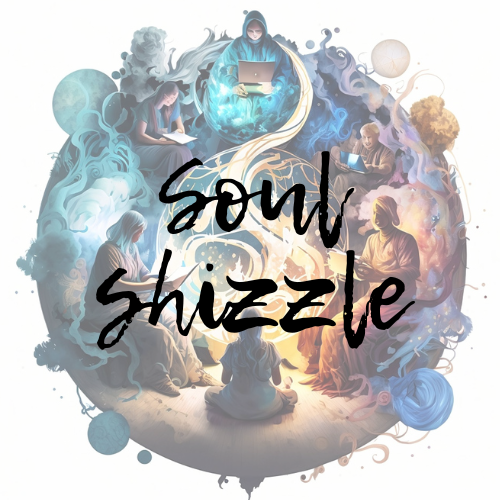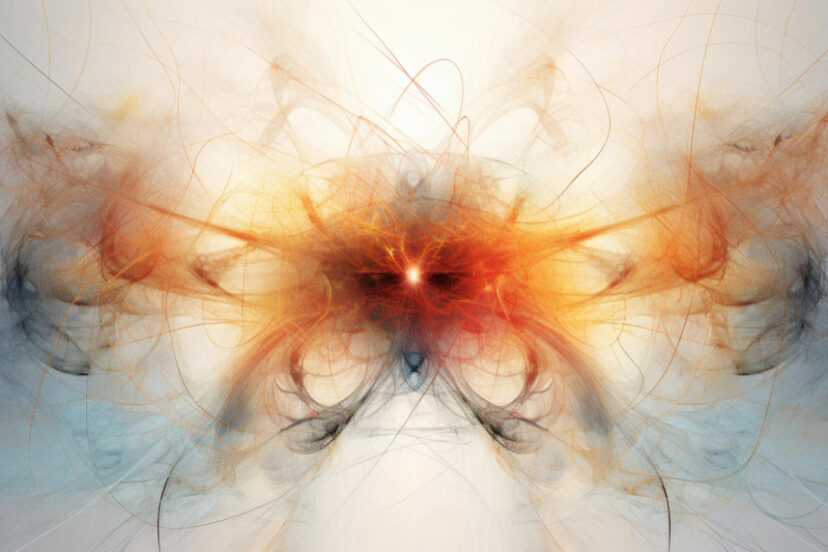What is Intuition: Your Gateway to Spiritual Growth and Inner Wisdom
Have you ever had that moment when something deep inside you just knew the right answer, even when logic couldn’t explain it? That gentle whisper in your heart that steered you away from a questionable situation, or the sudden certainty that led you toward an unexpected opportunity? If so, you’ve experienced the profound gift that we all carry within us—our intuition.
Understanding What Is Intuition at Its Core
What is intuition? At its essence, intuition is that quiet, subtle voice inside each of us that serves as an internal compass, guiding us toward making aligned decisions and taking purposeful action. It’s the bridge between our conscious mind and something much deeper—a wellspring of wisdom that transcends ordinary thinking and connects us to a greater understanding of ourselves and the world around us.
Unlike the analytical mind that processes information step by step, intuition works differently. It arrives as a complete knowing, a felt sense that bypasses rational thought and speaks directly to our soul. This inner knowing doesn’t shout or demand attention; instead, it communicates through gentle nudges, body sensations, sudden insights, or that familiar feeling we often call a “gut instinct.”
For many of us, developing this intuitive capacity isn’t something that happens overnight. It’s a beautiful journey of learning to trust ourselves more deeply, quieting the noise of everyday life, and creating space for our inner wisdom to emerge. And here’s what makes this journey even more meaningful—as we strengthen our connection to intuition, we simultaneously open doorways to profound spiritual growth and transformation.

The Sacred Connection Between Intuition and Spiritual Development
There’s something truly magical about the relationship between intuition and our spiritual evolution. What is intuition in the spiritual context? It becomes a sacred pathway that connects us directly to the divine presence within and around us. When we learn to trust these inner promptings, we’re essentially stepping beyond the limitations of our ego-mind and opening ourselves to guidance from our higher self—that part of us that remains connected to universal wisdom and love.
This process of surrendering to intuitive guidance requires a beautiful kind of courage. It asks us to release our need to control every outcome and instead trust in the intelligence of life itself. When we make this shift, something remarkable happens: we begin to experience ourselves as part of something much larger and more magnificent than we previously imagined.
Many spiritual traditions throughout history have recognized intuition as a direct line to the sacred. Whether called inner knowing, divine guidance, or the voice of the soul, this capacity to receive wisdom beyond ordinary thinking has been honored as one of our most precious spiritual gifts. As we learn to trust and follow this guidance, we naturally find ourselves drawn into deeper spiritual practices, more meaningful relationships, and a life that feels increasingly aligned with our true purpose.
Recognizing the Many Faces of Intuitive Guidance
Understanding what is intuition means learning to recognize the diverse ways it communicates with us. For some, intuitive messages arrive as physical sensations—that tightening in the chest when something feels off, or the sense of expansion and lightness when we’re moving in the right direction. Others experience intuition through emotional knowing, sudden insights that seem to appear from nowhere, or vivid dreams that carry important messages.
Your intuition might speak to you through synchronicities—those meaningful coincidences that feel too perfect to be random. Perhaps you’ve been thinking about someone and then unexpectedly run into them, or you’ve been grappling with a decision when the perfect book, conversation, or opportunity appears to provide clarity.
Some people receive intuitive guidance through their creative expression, finding that their writing, art, or music channels wisdom they didn’t consciously possess. Others discover that their intuition is strongest in nature, where the quiet rhythm of the natural world helps them tune into their inner knowing.
The key is to become curious about your own unique intuitive language. How does wisdom want to communicate with you? What patterns can you notice in the moments when you’ve felt most guided? This awareness becomes the foundation for strengthening your intuitive abilities.
Practical Pathways to Developing Your Intuitive Gifts
Cultivating Deep Trust in Your Inner Guidance
The journey of developing intuition begins with learning to trust the subtle messages you’re already receiving. What is intuition asking of us? It’s inviting us to value our inner knowing as much as we value external information and expert opinions.
Start by paying attention to those gut feelings that arise throughout your day. When you meet someone new, notice your initial sensing of their energy before your mind forms judgments. When faced with decisions, observe what happens in your body when you consider different options. Does one choice create a sense of expansion while another brings contraction?
Keep a small journal where you can note these intuitive hits. Write down your hunches, dreams, or sudden knowings, and then observe how they unfold over time. You might be surprised to discover how often your initial intuitive sense proves accurate. This practice builds evidence that helps your rational mind trust the wisdom of your intuitive nature.
Creating Sacred Silence Through Meditation and Stillness
One of the greatest gifts we can give our intuitive development is the practice of regular stillness. In our world filled with constant stimulation and endless chatter, our intuitive voice often gets drowned out by mental noise and external demands. Meditation becomes a sanctuary where we can return to the quiet depths of our being and remember what is intuition at its purest level.
You don’t need to become a meditation master to benefit from this practice. Even five or ten minutes of conscious breathing can create enough space for your inner wisdom to emerge. Sit comfortably, close your eyes, and simply follow your breath as it flows in and out. When thoughts arise—and they will—gently return your attention to your breathing without judgment.
Many people find that walking meditation connects them powerfully to their intuitive nature. Choose a peaceful path, whether in nature or simply around your neighborhood, and walk slowly with full attention. Let your body’s rhythm and the repetitive motion quiet your mind while opening your awareness to subtle impressions and insights.
Experiment with different forms of meditation to discover what resonates with you. Some people connect deeply with guided visualizations, others prefer silent sitting, and still others find their meditation in creative activities like painting or playing music. The key is consistency rather than perfection—showing up regularly to create this sacred space in your life.
Deepening Self-Awareness Through Reflective Practices
Understanding what is intuition requires developing intimate knowledge of yourself—your patterns, fears, desires, and the various voices that compete for attention within your psyche. The more clearly you can distinguish between your intuitive wisdom and other internal voices (like anxiety, conditioning, or wishful thinking), the more reliably you can access genuine guidance.
Journaling becomes a powerful tool for this self-discovery. Set aside time regularly to explore questions like: What am I feeling in my body right now? What wants my attention today? If I could ask my wisest self for guidance about this situation, what might they tell me? Allow your pen to move freely without censoring what emerges. Often, the most profound insights come when we stop trying to control the process.
Another valuable practice is what we might call “emotional archaeology”—gently exploring the deeper layers of your emotional responses. When you notice strong reactions to people or situations, get curious about what they might be teaching you about yourself. Sometimes our intuition speaks through emotional responses that initially seem irrational but carry important information about our needs, boundaries, or life direction.
Pay attention to your energy levels throughout the day. What activities, people, or environments leave you feeling drained versus energized? Your body’s wisdom often knows what serves your highest good before your mind figures it out. This somatic intelligence becomes an invaluable part of your intuitive guidance system.
Embracing Trust in the Unfolding Journey
Perhaps the most challenging aspect of developing intuition is learning to trust the process, especially when the guidance doesn’t make logical sense or leads us into unfamiliar territory. What is intuition calling us toward? Often, it’s inviting us to step beyond our comfort zones and trust in a wisdom larger than our individual understanding.
This trust develops gradually, through countless small acts of faith. Maybe your intuition suggests you take a different route to work, and you discover something beautiful or meaningful along the way. Perhaps you feel drawn to call an old friend, only to learn they needed support that day. These seemingly small experiences build a foundation of trust that supports you when intuition guides you toward bigger life changes.
It’s important to remember that following intuitive guidance doesn’t guarantee a smooth path. Sometimes our inner wisdom leads us through challenging experiences because those challenges serve our growth in ways we can’t initially understand. Learning to trust doesn’t mean expecting everything to be easy; it means developing faith that even difficult experiences are part of our soul’s journey toward greater wisdom and love.

Common Obstacles and How to Navigate Them Gracefully
As you develop your relationship with intuition, you’ll likely encounter some familiar challenges. Many people struggle with distinguishing between authentic intuitive guidance and fear-based thinking, wishful thinking, or social conditioning. This discernment comes with practice and patience with yourself.
Fear-based thoughts often come with a sense of urgency, contraction, or anxiety. They tend to focus on worst-case scenarios and push you toward reactive decisions. Intuitive guidance, by contrast, usually feels calm and expansive, even when it’s guiding you toward challenging growth. It doesn’t rush you but instead offers a sense of rightness and alignment.
Another common obstacle is over-analyzing intuitive messages. When you receive guidance, there’s often a temptation to immediately figure out how it will work or what it means for the future. But what is intuition asking of us in these moments? Simply to receive the guidance with gratitude and take the next obvious step, trusting that further direction will unfold as needed.
Cultural conditioning can also interfere with intuitive development. Many of us have been taught to value rational thinking above all else, making it challenging to trust non-logical forms of knowing. Remember that developing intuition doesn’t mean abandoning practical thinking; it means integrating both forms of intelligence for more complete decision-making.
Living an Intuition-Guided Life
As your relationship with intuition deepens, you may find that your entire approach to life begins to shift. Instead of forcing outcomes through willpower alone, you learn to sense the natural flow of circumstances and align yourself with opportunities that feel right. This doesn’t mean becoming passive; rather, it means taking inspired action that feels energetically aligned.
What is intuition teaching us about living fully? It shows us that we have access to guidance that can help us navigate complexity with more grace, make decisions that truly serve our wellbeing, and connect more authentically with others. An intuition-guided life often feels less stressful and more meaningful because we’re operating from alignment rather than constantly swimming against the current.
Many people discover that as they trust their intuition more, their relationships improve. They become better at sensing what others need, setting appropriate boundaries, and attracting people who resonate with their authentic self. Their work life often transforms as well, as they make career choices based on what truly fulfills them rather than just what looks good on paper.
The Ripple Effects of Intuitive Living
When we learn to trust and follow our inner guidance, the benefits extend far beyond our individual lives. What is intuition contributing to the world? Each person who learns to live from their authentic center becomes a source of healing and inspiration for others. We model what it looks like to trust ourselves deeply, make decisions from love rather than fear, and contribute our unique gifts to the world.
Families often transform when one member begins living more intuitively. Children especially benefit from being around adults who trust their inner wisdom, as this gives them permission to value their own intuitive nature. Communities become healthier when they include people who can sense what’s needed beyond surface appearances and respond with wisdom and compassion.
Your Invitation to Begin
Understanding what is intuition is ultimately less about intellectual knowledge and more about lived experience. Your intuitive abilities are already present within you, waiting to be recognized, trusted, and developed. Every moment offers an opportunity to tune in more deeply to your inner wisdom.
Start where you are today. Notice what your body is telling you as you read these words. Pay attention to the subtle feelings that arise when you consider different possibilities for your day. Trust the gentle nudges toward activities, people, or choices that feel aligned with your deeper knowing.
Remember that developing intuition is not about becoming perfect at receiving guidance; it’s about deepening your relationship with the wise, loving presence that lives within you. This relationship will grow stronger with time, patience, and practice. Each step you take toward trusting your inner wisdom is a step toward living more authentically, purposefully, and joyfully.
Your intuition is calling to you right now, inviting you to trust the journey of becoming who you’re truly meant to be. Will you listen?
We may earn a commission for purchases made using our links. Please see our disclosure to learn more.




